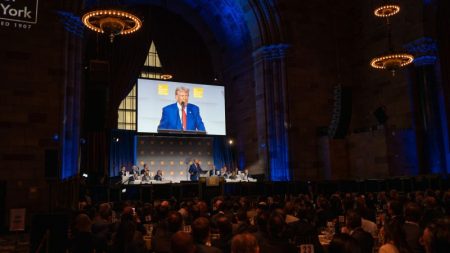Unlock the Editor’s Digest for free
Roula Khalaf, Editor of the FT, selects her favourite stories in this weekly newsletter.
Singapore’s state-owned fund Temasek has said it will prioritise US investments and be “cautious” about China, after warning that its large exposure to the world’s second-biggest economy had hit its performance.
Temasek, one of the world’s biggest state-owned investment groups, said on Tuesday that the value of its portfolio rose just 2 per cent to S$389bn ($288bn) in the year to March.
While those figures lag behind a 28 per cent gain for the S&P 500 stock index over the same period, the rise was an improvement on last year when its value tumbled 5 per cent in its worst returns since 2016.
Growth from investments in the US and India was “offset by the underperformance of China’s capital markets”, Temasek said in its annual review. The MSCI China index was down 19 per cent during the same period.
China is Temasek’s third-biggest market after Singapore and the Americas, with 19 per cent of its portfolio tied to the country. The group has been one of the big beneficiaries of China’s growth over the past two decades with bets on technology giants Tencent and Alibaba and ecommerce group Meituan.
“What we’d like to see is consumer confidence returning and spending going up” in China, said Chia Song Hwee, Temasek’s deputy chief executive, in an interview with the Financial Times.
He said Sino-US tensions had altered its approach. “In the US we try to invest in companies that do not rely on importation from China. And in China, we invest in companies that do not rely on exports to the US.”
Chia also struck a cautious note on artificial intelligence investment. He said Temasek was “not in a hurry” to put money behind the AI boom and warned of “hype” in the industry.
The state-backed group did not plan to invest directly in OpenAI, he said, but added that people “should not be surprised” if it had exposure to the company through investments in venture capital funds. Temasek was in discussions to invest in OpenAI, the FT reported in March.
Chia said Temasek’s approach to early-stage AI start-ups was “to invest through VC funds who are much more nimble and they will build a portfolio around the space. We will probably do direct investments on the back of what we learn from that”.
Temasek said last year it was “disappointed” with its $275mn bet on failed cryptocurrency exchange FTX. It was forced to write off its stake after the company collapsed, prompting a rare backlash from investors.
“When there’s a lot of capital coming into any area one needs to be watchful,” Chia said at a press conference, identifying “the AI hype” and the boom in private credit as two areas of exuberance.
Temasek said the US would continue to be “the largest destination of our capital” outside Singapore. It said it would increase its focus on India, Japan and south-east Asia, markets that have benefited as global investors seek to cut their exposure to China as growth slows and geopolitical tensions rise.
Temasek praised the performance of London-based bank Standard Chartered, despite chief executive Bill Winters in February describing its share price as “crap”. Temasek is the lender’s biggest shareholder.
“I think the operating performance actually improved quite significantly” over the past three years, said Connie Chan, Temasek’s head of financial services.
Temasek has over the years shifted from public equities to private markets, increasing its allocation to unlisted assets to 52 per cent of its portfolio as of March from 20 per cent in 2004.
While it benefited from a private equity boom, executives have warned that funds face the prospect of lower returns as rising interest rates have hit its debt-fuelled model.
“Low interest rates, with a lot of leverage to make acquisitions, drove some part of the returns in the private equity space,” said Alpin Mehta, head of real estate and deputy head of private equity fund investments at Temasek.
“But even if you had to take that and strip that off, I think the returns are still fairly attractive.”
Read the full article here



